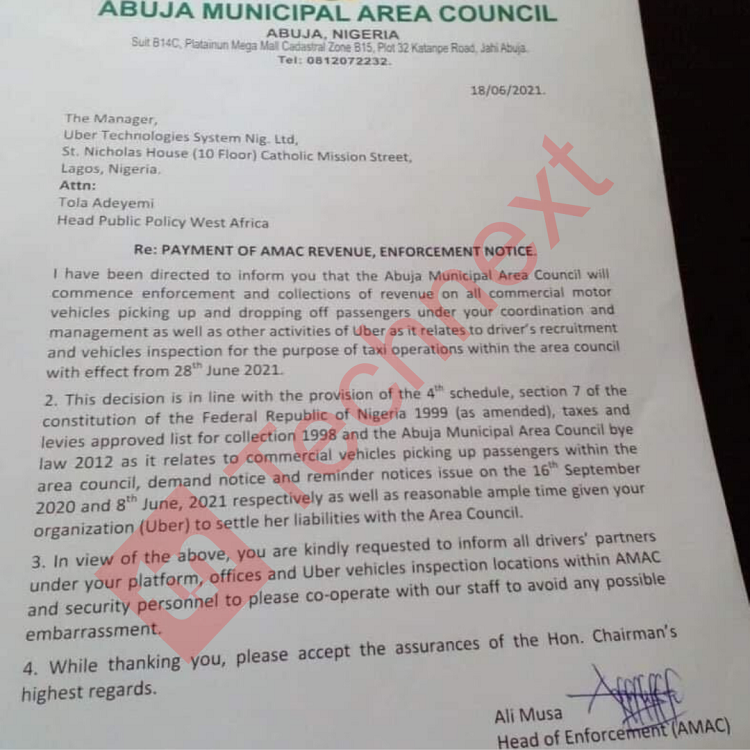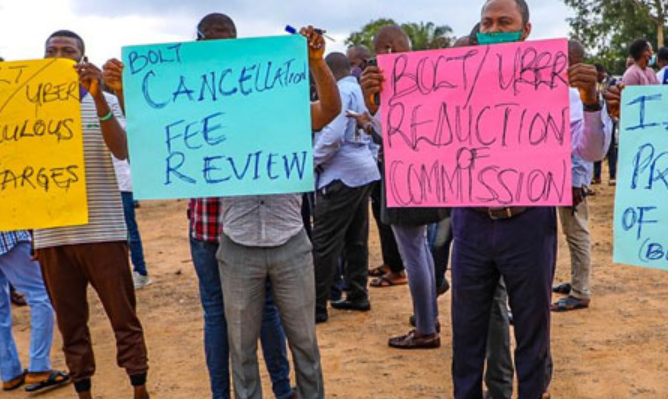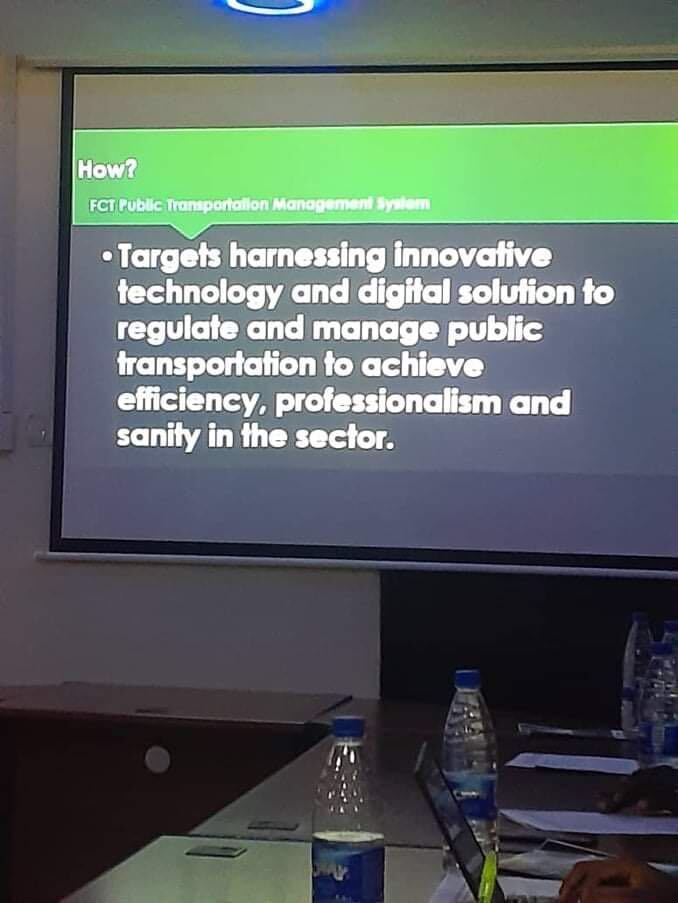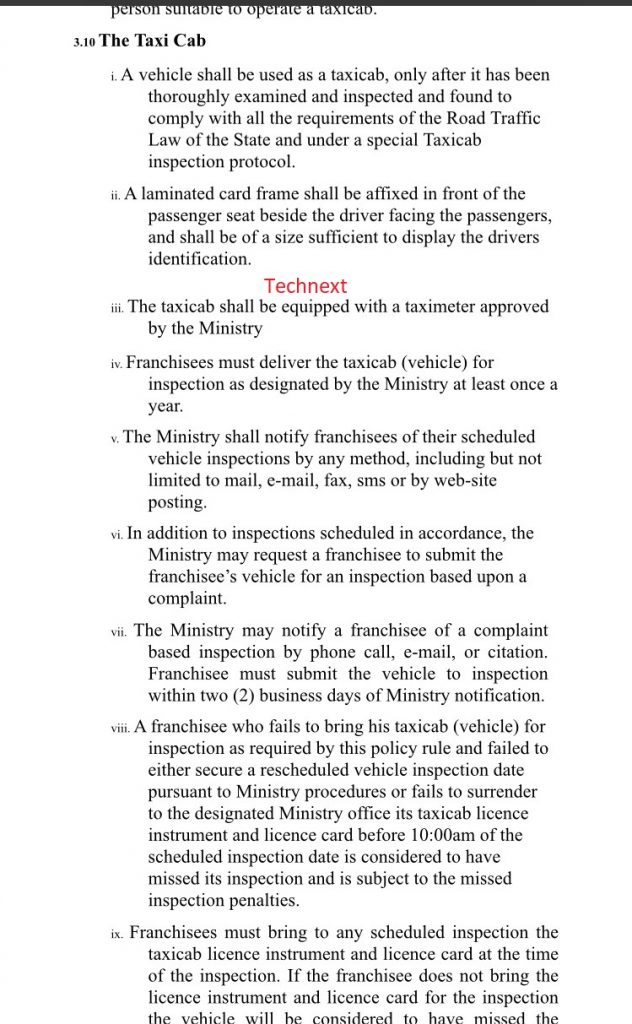It appears that the authorities of the Federal Capital Territory (FCT), Abuja are set to commence a regime of licensing ride-hailing drivers and ensuring compliance from October 1st, 2021. This follows a series of clampdowns targeted at operators in the city for about 3 months now and a subsequent outcry.
This is according to documents and materials obtained by Technext.
According to the FCT’s Directorate of Road Traffic Service (DRTS) in Abuja, the aim of this regulation is to harness innovative technology and digital solution to regulate and manage public transportation to achieve efficiency, professionalism and sanity in the sector.
While it is not yet clear what the requirements will be for ride-hailing companies like Uber and Bolt will be, Technext confirmed that drivers operating in Abuja have been mandated to upgrade their regular drivers’ licence to a hybrid licence specific to e-hailing drivers only.
“All app-based e-hailing vehicle operators risk being arrested by the VIO, except those that convert their vehicle licence from the conventional vehicle licence to hybrid licence,” a document issued by the DRTS states.
Chasing the drivers; some background to the story
Recall that we reported in June, that drivers on ride-hailing platforms (Uber and Bolt) were facing serious regulatory challenges in the FCT. This resulted in a series of clampdowns by the revenue task force officials of the Municipal Area Council (AMAC) of Abuja.
According to our findings, the council had informed Uber and Bolt about paying taxes as far back as 2019. But it choose to start enforcing the new regulation in June when AMAC sent an enforcement notice to the companies, requesting them to get their drivers to cooperate to avoid embarrassment.


With the notice, the council began going after the drivers. This forced the drivers, through the National Union of Professional App-based Transport Workers (NUPA-BTW), to respond on June 24.
Related Story: Uber and Bolt face regulatory concerns in Abuja as council officials clampdown on drivers
In the letter we saw, the chairman of NUPA-BTW and Director of the International Alliance of App-based Transport Workers (IAATW), Comrade Ibrahim Ayoade said that the attempt by the council to tax drivers amounts to double taxation as they already pay 25% commission to the e-hailing companies which included taxes.
“Demanding payment from drivers directly as stated in your notice amounts to double taxation because as an app-based company, the 25% deducted from drivers which you are aware of, is inclusive of the tax you are currently demanding from the drivers.”
Extract from letter from NUPA-BTW to AMAC
Now, it seems the authorities in the FCT saw reason with the drivers’ union and is now soft-pedalling on its initial tax extraction stand to a more regulatory one.


Requirements for Uber and Bolt drivers in Abuja
Along with the upgraded hybrid driver’s licence, Uber and Bolt drivers are also required to obtain a Driver’s Certificate Card (DCC) which qualifies them to operate taxi-hailing services in the FCT.
To qualify for the licence upgrade and DCC, prospective riders will be required to provide evidence of membership of an app-based association in the Federal Capital Territory with a verifiable form of identification.
They will also be required to produce a valid NIN and of course, a valid drivers’ licence.
“In addition, the Drivers Certificate Card (DCC) is also required along with the licence conversion. To obtain the DCC, drivers are to undergo a one-day mandatory training,” the document reads.


Voluntary registration of the DCC will commence on October 1 2021 and run through December 31, 2021. Voluntary registration will be free for this period after which drivers will be required to pay for it.
According to the DRTS, enforcement of the regulation will commence on January 1, 2022.
Looking at the bigger picture…
This is one of several schemes by Abuja’s DRTS to sanitise road activities in the state. Other schemes released by the directorate includes the Delivery Service Scheme for Dispatch riders which mandates dispatch riders to register for a special number plate.
There’s also the Taxi Operators Licence Scheme Registration as well as the Special Trade Licence Regulation Scheme for auto and spare parts dealers and the Drivers/Riders Certification Scheme from the drivers’ institute to gather information on users of e-hailing services.


For the President of NUPA-BW, Comrade Ibrahim Ayoade, the Abuja e-hailing regulation is more impactful than the one adopted by the Lagos state government. This is because it saw the need for the sector to be unionised and recognised the union in its provisions.
While stating that the provision is necessary for proper identification and documentation of drivers operating in the space for security and safety, he faulted Uber and Bolt for not providing the government with that information, to begin with.
“The beautiful and special thing with the Abuja regulations is that they recognize our Union because drivers must have our ID card before they can operate. This is in a bid to streamline communication and app-based drivers representative as one of the important stakeholders in the industry,” he said.
Ibrahim said that the regulation is important for the security of drivers. According to him, a lot of passengers have gotten away with harassing and harming drivers because e-hailing companies refused to provide the passengers’ details for investigation and there is no policy that obliges them to do so.
“But with this regulation, we can demand profile of riders through our data bank by the government to link it with police for assistance during security challenge on the road,” he said.
Abuja is unlike Lagos
Comrade Ayoade praised AMAC for not including too many requirements, certifications and financial requirements from the drivers in the new regulation, unlike the regulation introduced by the Lagos state government.
“Lagos state added about six extra papers apart from our normal vehicle licence papers and they still collect a road development fee. Abuja just introduced only 2 papers, one which is the DCC Drivers certificate card while the other paper is your upgraded hybrid vehicle licence”.
President of NUPA-BW, Comrade Ibrahim Ayoade
The Lagos State e-hailing regulation stipulates that drivers must have a driver’s licence, Lagos State Residents Registration Agency (LASSRA) card, Lagos State Drivers Institute (LASDRI) card, as well as a Lagos State Taxi badge.
Drivers are also required to conspicuously place a laminated identification card frame where passengers can see them, although drivers have largely disregarded this stipulation.
He suggested that this template we will be introduced to others state if it works successfully in Abuja. This will ensure that the issues of regulating app-based drivers is sufficiently addressed.






